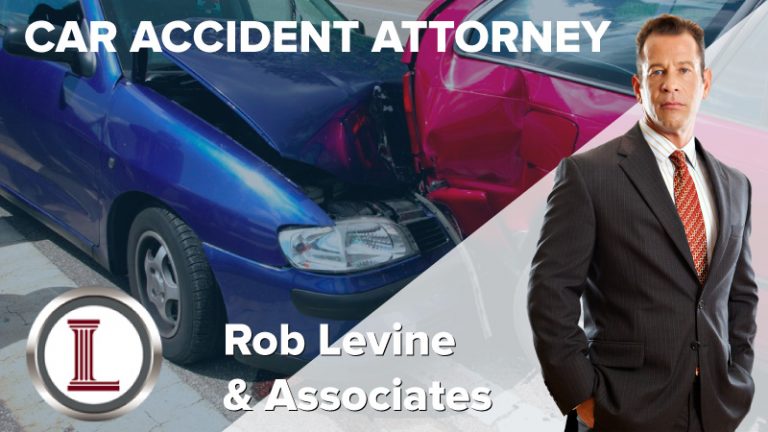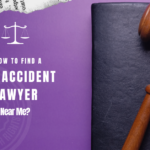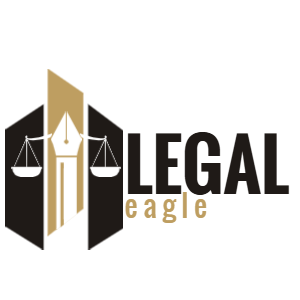Car Accident Lawyers Near Me Free Consultation
Car accident lawyers near me free consultation: Navigating the aftermath of a car accident can be overwhelming, especially when dealing with injuries, insurance claims, and legal complexities. Finding the right legal representation can make a world of difference in protecting your rights and ensuring a fair outcome.
This guide provides a comprehensive overview of car accident law, the benefits of legal representation, and essential steps to take after an accident. We’ll also discuss common legal issues, the legal process, and valuable resources available to car accident victims.
Understanding Car Accident Law
Car accidents can have devastating consequences, both physically and financially. If you’ve been involved in a car accident, it’s crucial to understand your legal rights and options. This section will provide a basic understanding of car accident law, including the principles of negligence, common types of accidents, and the role of insurance.
Negligence in Car Accidents
Negligence is a key concept in car accident law. To prove negligence, you must demonstrate that the other driver owed you a duty of care, breached that duty, and their breach directly caused your injuries.
In essence, negligence means that the other driver acted carelessly or failed to act reasonably, leading to the accident.
For example, if a driver runs a red light and causes an accident, they have breached their duty of care to other drivers.
Common Types of Car Accidents
Car accidents can occur in many different ways, resulting in a variety of injuries. Here are some common types of car accidents:
- Rear-end collisions: These accidents happen when a driver crashes into the rear of another vehicle. They can cause whiplash, back injuries, and head trauma.
- Side-impact collisions: These occur when a vehicle collides with the side of another vehicle. These accidents can result in serious injuries, including broken bones, internal bleeding, and head injuries.
- Head-on collisions: These accidents are often the most severe, involving a direct collision between the front ends of two vehicles. Head-on collisions can cause significant injuries, including spinal cord injuries, brain damage, and death.
- Rollover accidents: These accidents occur when a vehicle flips over, often resulting in severe injuries and fatalities.
Role of Insurance in Car Accident Cases
Insurance plays a vital role in car accident cases. Your own car insurance policy, as well as the other driver’s insurance, will determine how your claim is handled.
- Your own insurance: Your car insurance policy may cover medical expenses, lost wages, and property damage. You may also have uninsured/underinsured motorist coverage to protect you if the other driver is uninsured or their insurance coverage is insufficient.
- The other driver’s insurance: If the other driver was at fault, their insurance company will be responsible for covering your damages. This may include medical bills, lost wages, and property damage.
The Importance of Seeking Legal Representation
After a car accident, navigating the legal complexities and ensuring your rights are protected can be overwhelming. Hiring a car accident lawyer can provide invaluable support and guidance throughout the process.
The aftermath of a car accident can be emotionally and physically draining. Dealing with insurance companies, medical bills, and lost wages while recovering from injuries can be a daunting task. An experienced car accident lawyer can help you navigate these challenges and advocate for your best interests.
The Legal Complexities of Car Accidents
Car accident cases can involve a wide range of legal issues, including:
- Determining fault and liability
- Negotiating with insurance companies
- Filing lawsuits and representing you in court
- Understanding state laws and regulations
Even seemingly straightforward accidents can become complicated, especially when multiple parties are involved, or if there are disputes regarding insurance coverage. A lawyer can provide the expertise and knowledge necessary to navigate these complexities effectively.
The Benefits of a Free Consultation
A free consultation with a car accident lawyer offers a valuable opportunity to discuss your situation and understand your legal options. This consultation can help you:
- Assess your case: A lawyer can evaluate the facts of your accident and determine the strength of your claim.
- Understand your legal rights: A lawyer can explain the laws and regulations relevant to your case and clarify your rights as an injured party.
- Explore potential outcomes: A lawyer can discuss possible outcomes of your case, including potential settlements and court judgments.
- Develop a legal strategy: A lawyer can work with you to develop a legal strategy that aligns with your goals and objectives.
A free consultation allows you to gain valuable insights into your legal options and make informed decisions about your case. It is a no-obligation opportunity to discuss your situation with an experienced professional and get the information you need to move forward confidently.
What to Do After a Car Accident

A car accident can be a traumatic experience, leaving you shaken and unsure of what to do next. It is crucial to remain calm and prioritize safety and documentation. Taking the right steps immediately after an accident can significantly impact your legal rights and the outcome of any potential insurance claims.
Steps to Take Immediately After a Car Accident
It is essential to take immediate action after a car accident to ensure your safety, gather crucial evidence, and protect your legal rights.
- Ensure Safety: The first priority is to check for injuries and ensure the safety of yourself and anyone else involved in the accident. If anyone is injured, call emergency services immediately.
- Move to a Safe Location: If possible, move your vehicle to a safe location off the road to avoid further accidents. However, if your vehicle is blocking traffic or poses a hazard, leave it where it is and call the police.
- Call the Police: Regardless of the severity of the accident, it is crucial to contact the police. They will document the accident, create an official report, and may issue citations.
- Exchange Information: Exchange contact and insurance information with the other driver(s) involved. Include names, addresses, phone numbers, insurance company names, and policy numbers.
- Take Photos and Videos: Document the accident scene by taking photographs and videos of the damage to your vehicle, the other vehicles involved, and the surrounding area. Capture the location of the accident, any skid marks, and any visible injuries.
- Obtain Witness Information: If there are any witnesses to the accident, gather their contact information.
Gathering Evidence and Documentation
Gathering evidence immediately after a car accident is crucial for building a strong case and protecting your legal rights.
- Police Report: Obtain a copy of the police report from the investigating officer. This report will document the accident details, including the names of those involved, the location, and any citations issued.
- Photos and Videos: As mentioned earlier, take detailed photos and videos of the accident scene, including the vehicles, injuries, skid marks, and any other relevant details.
- Medical Records: Seek medical attention immediately after the accident, even if you feel fine. Document all injuries, treatments, and medical expenses.
- Insurance Information: Gather all insurance information from all parties involved, including your own policy details.
- Witness Statements: If there are any witnesses to the accident, obtain written statements from them describing what they saw.
Seeking Medical Attention
Even if you don’t feel injured immediately after a car accident, it is crucial to seek medical attention as soon as possible.
- Immediate Medical Evaluation: A medical professional can assess your condition, diagnose any injuries, and provide appropriate treatment.
- Documentation of Injuries: Medical records are crucial evidence in a car accident case. They document your injuries, treatment, and medical expenses.
- Delayed Injuries: Some injuries, such as whiplash or soft tissue damage, may not appear immediately after an accident. Seeking medical attention promptly helps ensure these injuries are diagnosed and treated appropriately.
Key Considerations for Choosing a Lawyer
Choosing the right car accident lawyer is crucial to maximizing your chances of a successful outcome. This decision should not be taken lightly, as it significantly impacts your legal rights and potential compensation.
Understanding Your Needs
It is essential to understand your specific needs and goals before selecting a lawyer. Consider the severity of your injuries, the complexity of your case, and the amount of compensation you are seeking.
Experience and Expertise
A lawyer with a proven track record in handling car accident cases is invaluable. Experience in this area allows them to navigate the legal complexities effectively, understand the nuances of insurance claims, and negotiate favorable settlements.
Communication and Accessibility
Clear and open communication is essential throughout the legal process. Choose a lawyer who is responsive to your questions and concerns, provides regular updates on your case, and is accessible when you need them.
Reputation and Reviews
Investigate the lawyer’s reputation and read online reviews from previous clients. This provides insights into their professionalism, communication skills, and overall client satisfaction.
Questions to Ask Potential Lawyers
- What is your experience handling car accident cases?
- What is your fee structure, and how will you be compensated?
- How will you keep me informed about the progress of my case?
- What is your strategy for resolving my case?
- Can you provide me with references from previous clients?
Common Legal Issues in Car Accident Cases
Car accidents can be traumatic and confusing, and the legal complexities involved can be overwhelming. Understanding common legal issues will help you navigate the aftermath of a car accident and protect your rights.
Fault and Liability
Determining fault in a car accident is crucial to establish liability. In most states, fault is determined based on the principles of negligence. This means that the driver who is found to have acted negligently, or failed to exercise reasonable care, is typically held liable for the damages caused. Negligence can be proven by showing that the driver:
- Breached a duty of care to other drivers and pedestrians.
- Caused an accident due to their actions or inactions.
- Resulted in injuries and property damage.
In some cases, multiple drivers may be found partially at fault. For example, if both drivers were speeding, they could be held jointly liable for the accident. The allocation of fault can affect the amount of compensation each party receives.
Damages
Damages refer to the financial losses and injuries suffered as a result of a car accident. They can be categorized as:
- Economic damages: These are tangible losses that can be objectively measured, such as medical expenses, lost wages, and property damage.
- Non-economic damages: These are intangible losses that are more subjective, such as pain and suffering, emotional distress, and loss of enjoyment of life. While these damages are harder to quantify, they can be significant in car accident cases.
Expert Witnesses
Expert witnesses play a vital role in car accident cases, providing specialized knowledge and opinions to support a party’s claims. Common types of expert witnesses include:
- Accident reconstructionists: They analyze accident scenes and data to determine the cause of the accident and the sequence of events. They can help establish fault and liability by reconstructing the accident based on physical evidence and witness statements.
- Medical professionals: Doctors, nurses, and other healthcare providers can provide expert testimony on the nature and extent of injuries sustained in the accident. They can also assess the long-term impact of injuries and the need for future medical treatment.
- Economists: Economists can quantify economic damages, such as lost wages and future earning capacity. They can analyze financial records and employment history to determine the economic impact of the accident.
Negotiating a Settlement with Insurance Companies
After a car accident, you may be contacted by the insurance company of the at-fault driver. The insurance company may offer a settlement to resolve your claim. However, it’s crucial to understand that insurance companies prioritize their bottom line and may offer a settlement that is less than the full value of your claim. It’s essential to:
- Consult with an experienced car accident lawyer: A lawyer can review your case, assess the value of your claim, and negotiate a fair settlement on your behalf. They have the knowledge and experience to deal with insurance companies and protect your rights.
- Gather all relevant documentation: This includes medical records, police reports, photos of the accident scene, and any other evidence that supports your claim.
- Do not accept the first settlement offer: Insurance companies may offer a lowball settlement to quickly resolve the claim. It’s crucial to carefully evaluate the offer and consider all factors, including future medical expenses and lost wages.
- Be prepared to go to court: If the insurance company refuses to offer a fair settlement, you may need to file a lawsuit to recover the compensation you deserve. An experienced car accident lawyer can guide you through the legal process and represent you in court.
The Legal Process After a Car Accident
After a car accident, the legal process can feel overwhelming, especially when you’re dealing with injuries and other challenges. Understanding the steps involved can help you navigate this process effectively and protect your rights.
Filing a Car Accident Lawsuit
Filing a lawsuit is a formal legal action taken to seek compensation for damages caused by a car accident. The process begins with a complaint, a document outlining the details of the accident and the specific legal claims being made. This document is filed with the court, and a copy is served on the defendant, the person or entity responsible for the accident.
- Complaint: This document Artikels the details of the accident, including the date, time, location, and the parties involved. It also states the legal claims being made, such as negligence, and the specific damages being sought.
- Summons: The summons is a legal document that formally notifies the defendant of the lawsuit. It instructs the defendant to respond to the complaint within a specific timeframe.
- Answer: The defendant’s response to the complaint is called an answer. In the answer, the defendant may admit or deny the allegations in the complaint and may also raise any affirmative defenses they may have.
- Discovery: The discovery phase is a critical part of the legal process where both parties gather information and evidence to support their claims. This may involve depositions, interrogatories, and requests for documents.
- Motion Practice: During the legal process, either party may file motions to request specific rulings from the court. For example, a party may file a motion for summary judgment to seek a dismissal of the case based on the evidence.
- Trial: If the case is not settled, it will proceed to trial. During the trial, both parties present their evidence and witnesses to the judge or jury. The judge or jury will then decide the outcome of the case.
Discovery and Evidence Gathering, Car accident lawyers near me free consultation
The discovery phase plays a crucial role in building a strong case. It allows both sides to gather evidence to support their claims. This process involves:
- Depositions: These are sworn statements taken from witnesses, including the parties involved in the accident, eyewitnesses, and experts.
- Interrogatories: These are written questions that are sent to the other party, who must provide written answers under oath.
- Requests for Documents: This involves requesting documents relevant to the case, such as medical records, police reports, and insurance policies.
- Requests for Admissions: This involves requesting the other party to admit or deny specific facts related to the case.
Legal Remedies for Car Accident Victims
The goal of a car accident lawsuit is to seek compensation for damages suffered due to the accident. These damages can include:
- Economic Damages: These include quantifiable losses, such as medical expenses, lost wages, and property damage.
- Non-Economic Damages: These include intangible losses, such as pain and suffering, emotional distress, and loss of enjoyment of life.
- Punitive Damages: In some cases, punitive damages may be awarded if the defendant’s actions were particularly reckless or malicious. These damages are intended to punish the defendant and deter future wrongdoing.
Legal Resources for Car Accident Victims: Car Accident Lawyers Near Me Free Consultation

Navigating the aftermath of a car accident can be overwhelming, especially when dealing with injuries, vehicle repairs, and insurance claims. Thankfully, various legal resources are available to assist victims in understanding their rights and seeking appropriate compensation. These resources can provide crucial support and guidance throughout the recovery process.
Government Agencies
Government agencies play a vital role in protecting the rights of car accident victims. These agencies offer information, support, and resources to ensure fair treatment and access to justice.
- National Highway Traffic Safety Administration (NHTSA): The NHTSA is responsible for setting safety standards for vehicles and conducting research on traffic safety. It provides information on vehicle safety recalls, accident statistics, and resources for victims of car accidents.
- Federal Motor Carrier Safety Administration (FMCSA): The FMCSA regulates commercial motor vehicles and drivers. It investigates accidents involving commercial trucks and buses, and provides resources for victims of such accidents.
- State Departments of Motor Vehicles (DMVs): State DMVs handle driver licensing, vehicle registration, and accident reporting. They can provide information on accident reporting procedures, driver licensing requirements, and vehicle safety regulations.
Non-Profit Organizations
Non-profit organizations offer valuable support and advocacy for car accident victims. These organizations provide information, counseling, and financial assistance to help victims navigate the legal and emotional challenges of an accident.
- Mothers Against Drunk Driving (MADD): MADD is a non-profit organization dedicated to combating drunk driving and providing support to victims of drunk driving accidents.
- The National Safety Council (NSC): The NSC promotes safety in all aspects of life, including transportation. It offers resources and information on traffic safety, accident prevention, and victim support.
- The American Association for Justice (AAJ): The AAJ is a professional organization for trial lawyers. It provides resources and information on consumer protection laws related to car accidents.
Financial Assistance and Support Services
In addition to legal resources, car accident victims may be eligible for financial assistance and support services to help them cope with the aftermath of an accident.
- Personal Injury Protection (PIP) Coverage: PIP coverage is a type of insurance coverage that pays for medical expenses, lost wages, and other expenses related to an accident, regardless of fault.
- Medical Payments Coverage (Med Pay): Med Pay is a type of insurance coverage that pays for medical expenses regardless of fault, but it has a lower coverage limit than PIP.
- Disability Benefits: If a car accident results in a disability, victims may be eligible for disability benefits from the Social Security Administration or their employer.
- Workers’ Compensation: If the accident occurred while the victim was working, they may be eligible for workers’ compensation benefits, which cover medical expenses, lost wages, and other expenses.
Consumer Protection Laws
Consumer protection laws are designed to protect individuals from unfair or deceptive business practices. These laws can be helpful to car accident victims who are dealing with insurance companies or other businesses.
- The Fair Credit Reporting Act (FCRA): The FCRA protects consumers’ credit information and ensures that credit reports are accurate and used fairly.
- The Truth in Lending Act (TILA): The TILA requires lenders to disclose the terms of loans, including interest rates, fees, and other charges.
- The Fair Debt Collection Practices Act (FDCPA): The FDCPA protects consumers from abusive debt collection practices.
Common Mistakes to Avoid After a Car Accident
It’s natural to feel overwhelmed and confused after a car accident. You may be dealing with injuries, property damage, and insurance claims. In the midst of all this, it’s important to be aware of common mistakes that can jeopardize your rights and your claim. By understanding these mistakes and taking steps to avoid them, you can increase your chances of a successful outcome.
Not Seeking Medical Attention Immediately
Even if you don’t feel injured, it’s crucial to seek medical attention as soon as possible. Some injuries, like whiplash or concussions, may not manifest symptoms immediately. By delaying medical care, you could be jeopardizing your ability to prove the extent of your injuries and potentially weaken your claim.
- Consequence: If you don’t seek medical attention, the insurance company might argue that your injuries are not related to the accident.
- Advice: Always seek medical attention after an accident, even if you feel fine. This will create a record of your injuries and help you establish a claim.
Talking to the Other Driver’s Insurance Company
The other driver’s insurance company is not on your side. Their goal is to minimize their payout, and they may use your words against you. Avoid discussing the accident with them until you have spoken with your own attorney.
- Consequence: You may unknowingly admit fault or provide information that weakens your case.
- Advice: Always refer the other driver’s insurance company to your attorney. Let your attorney handle all communication with them.
Failing to Gather Evidence
Evidence is crucial in a car accident case. It helps establish liability and the extent of your damages.
- Consequence: Without sufficient evidence, your claim may be weakened or dismissed.
- Advice: Gather as much evidence as possible, including photographs of the accident scene, the damage to your vehicle, and any injuries you sustained. If possible, obtain contact information from witnesses.
Not Reporting the Accident to Your Insurance Company
You should report the accident to your insurance company as soon as possible. This is crucial for starting the claims process and ensuring your coverage.
- Consequence: Failing to report the accident could result in your insurance company denying your claim.
- Advice: Contact your insurance company immediately after the accident and provide them with all the necessary information.
Posting on Social Media
Be mindful of what you post on social media after an accident. Insurance companies often use social media posts to try and find information that can weaken your claim.
- Consequence: Your posts could be misinterpreted and used against you in court.
- Advice: Limit your social media activity after an accident. Avoid posting anything about the accident, your injuries, or your recovery.
The Role of Technology in Car Accident Cases
The rise of technology has dramatically changed the way car accidents are investigated and litigated. Devices like dashcams and smartphones are becoming increasingly common, providing valuable evidence that can be used to reconstruct accidents and determine liability.
Impact of Dashcams
Dashcams, small cameras mounted in vehicles, have become a valuable tool for gathering evidence in car accident cases. They provide a first-person perspective of the accident, capturing crucial details like speed, traffic conditions, and driver behavior.
- Unbiased Evidence: Dashcam footage provides an objective account of the accident, uninfluenced by driver biases or memory distortions. This can be crucial in cases where there are conflicting accounts or witnesses.
- Clear Visual Evidence: The footage often shows the sequence of events leading up to the accident, allowing for a clearer understanding of the cause and contributing factors. This can help determine liability and establish negligence.
- Supporting Other Evidence: Dashcam footage can be used to corroborate other evidence, such as witness statements or police reports, providing a more comprehensive picture of the accident.
Smartphone Use as Evidence
Smartphones are ubiquitous and their use in car accidents is becoming increasingly relevant in legal cases. They can provide evidence of:
- Location Data: GPS data from smartphones can pinpoint the location of the vehicle at the time of the accident, helping to verify or refute witness accounts.
- Call Logs and Text Messages: Call logs and text messages can reveal if the driver was distracted at the time of the accident, providing evidence of negligence.
- Social Media Posts: Posts on social media platforms can sometimes provide evidence of a driver’s state of mind or behavior leading up to the accident.
Examples of Technology’s Impact
There have been numerous instances where technology has played a pivotal role in car accident litigation.
- Red Light Camera Footage: Red light camera footage has been used to establish negligence in cases where drivers ran red lights, leading to collisions.
- Black Box Data: Black box data, which records information about a vehicle’s speed, braking, and other parameters, can be used to reconstruct accidents and determine fault.
- Social Media Evidence: In some cases, social media posts have been used as evidence of a driver’s intoxication or recklessness, leading to successful legal claims.
After a car accident, seeking legal advice from an experienced car accident lawyer is crucial. A free consultation allows you to discuss your specific situation, understand your legal options, and make informed decisions about your case. By understanding your rights and navigating the legal process with expert guidance, you can maximize your chances of a successful outcome.




